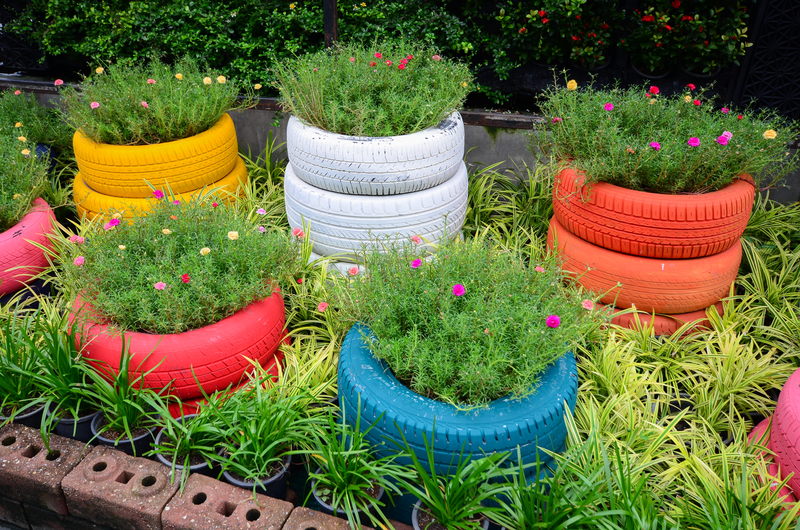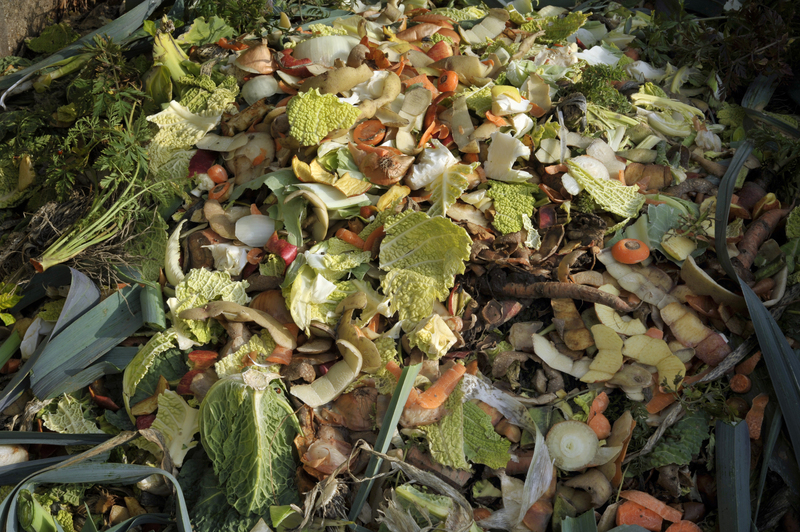How to Make Recycling a Fun Family Activity
Recycling at home is no longer just about saving the environment--it's also a fantastic way to bring families together and teach children valuable habits. Making recycling a fun family activity fosters eco-consciousness and creates lasting memories. If you've ever wondered how to make recycling enjoyable for your family, you're in the right place! In this comprehensive guide, we'll explore creative strategies, games, and tips to turn recycling into a memorable and meaningful part of your family routine.
Why Should Families Embrace Recycling Together?
Recycling as a family brings a host of benefits. Not only does it reduce household waste, but it also teaches children about responsibility and sustainability. When the entire family gets involved, recycling becomes more than a chore--it becomes a shared mission, a topic for conversation, and even a source of fun!
- Environmental Impact: Families collectively contribute to reducing landfill waste and conserving natural resources.
- Educational Opportunities: Kids learn real-world science, responsibility, and environmental stewardship.
- Building Lasting Habits: Early exposure to recycling encourages a lifetime of sustainable behavior.
- Promoting Teamwork: Working together on sorting and upcycling strengthens family bonds.

Creative Ways To Make Recycling Enjoyable At Home
1. Gamify the Sorting Process
Turn sorting recyclables into an exciting game! Assign points for correctly sorting materials and keep a family scoreboard. You can even set weekly or monthly challenges with small prizes to boost motivation.
- Bottle Toss Game: Have kids toss empty bottles into the right containers from a short distance.
- Recycling Bingo: Use a bingo card filled with common recyclable items. First to get bingo wins!
Tip: Reinforce the importance of checking recycling symbols on plastics to make it an educational experience.
2. Decorate Your Recycling Bins
Involving kids in decorating recycling bins makes the process personal and fun. Let everyone personalize a bin with colors, markers, stickers, and labels. Color-coded bins help younger children identify where to place items and add a splash of creativity to your kitchen or garage.
3. Organize a Family Recycling Craft Night
Upcycling crafts are a great way to show how recyclables can have a second life. Gather cleaned materials like jars, bottles, cardboard, and cans. Use them to build bird feeders, plant pots, art projects, or homemade musical instruments.
- Cardboard Castles: Use boxes to build creative playhouses or toy castles.
- Plastic Bottle Planters: Cut bottles to make quirky planters for windowsills.
- Tin Can Lanterns: Poke holes in cans, insert candles, and create beautiful night lights.
Encourage your children's creativity and showcase their completed upcycled crafts around the house!
4. Explore Local Recycling Centers Together
Many communities welcome families to tour their recycling facilities. Plan a weekend visit to a local recycling plant or waste treatment center. These behind-the-scenes tours can be eye-opening and deepen your family's understanding of how recycling works.
- Check for free events or educational programs at your nearest recycling center.
- Document the trip with photos or videos to make a family recycling scrapbook.
5. Create a Green Family Challenge
Challenge each family member to reduce waste, recycle more, or come up with innovative ways to reuse materials each month. Track progress using a chart on your fridge, and celebrate milestones like "One Month of Perfect Recycling!" with a fun reward.
- Choose an item (like plastic bottles) and see who recycles the most in a month.
- Have a "zero-waste day" where everyone tries not to produce any trash that can't be recycled or composted.
Educational Opportunities: Teach, Don't Just Tell
Understand the Basics Together
Schedule a family "eco-night" to learn the basics of recycling. Read books or watch child-friendly documentaries on sustainability. Discuss why it's important, what happens to recyclables, and how different materials are processed.
- Read Books: Titles like The Adventures of a Plastic Bottle or Why Should I Recycle?
- Watch Videos: Educational YouTube channels focused on recycling for children.
- Play Interactive Recycling Games: There are many online games that teach about waste management and recycling.
Practice Recycling Etiquette and Safety
Teach your children the recycling golden rules:
- Rinse containers before recycling.
- Remove non-recyclable caps or labels.
- Sort items into appropriate bins: paper, plastic, glass, and metal.
- Never recycle hazardous materials like batteries or electronics without proper guidance.
Tip: Younger kids may need adult supervision to avoid sharp edges on cans or glass.
Involve Everyone in Creating a Family Green Routine
Assign Recycling Roles
Make recycling inclusive by designating age-appropriate roles for each family member. Assign tasks like:
- The Recycler: Sorts and rinses recyclable materials each day.
- The Bin Checker: Ensures bins are not contaminated with non-recyclables.
- The Upcycler: Collects interesting items for craft nights or donation.
- The Reporter: Tracks how much your family recycles each week.
Host Themed Recycling Days
Choose one day each week or month as a Themed Recycling Day. Ideas include:
- Plastic-Free Friday: Try using as little plastic as possible.
- Paper Sorting Saturday: Focus on sorting, shredding, and recycling paper.
- Eco-Swap Sunday: Swap single-use products for reusable alternatives as a family project.
Set Up a Recycling Station
An organized recycling station at home encourages everyone to participate. Dedicate a small area with clearly labeled bins for each type of recyclable material. Visual cues, like colorful posters or labels with images, help younger family members identify where items belong.
Extend Recycling Awareness Beyond the Home
Get Involved with Community Recycling Events
Participate in local clean-up days, recycling drives, or charity events as a family. Not only are you supporting your community, but you're also exposing kids to the larger impact of their actions.
- Volunteer at a community garden using composted food scraps.
- Join neighborhood recycling challenges or green fairs.
- Organize a school recycling competition and encourage classmates to join in.
Advocate for Recycling at School or Work
Encourage your kids to start or join recycling clubs at school. Share tips and resources with teachers and other parents to spread recycling awareness. Adults can also encourage better recycling practices at work by improving office recycling stations or hosting lunchtime workshops on eco-friendly habits.
Fun Recycling Facts to Share with Your Family
- Recycling one ton of paper saves 17 trees and enough energy to power the average home for six months!
- Over 60% of aluminum cans are recycled each year--making them one of the most recycled items worldwide.
- Glass can be recycled infinitely without losing quality or purity.
- Plastic pollution is a global problem--encourage kids to use reusable bags and bottles whenever possible.

Overcoming Recycling Challenges as a Family
Know What's Accepted Locally
Municipal recycling programs often have different rules. Make sure your family is aware of what's accepted in your area and adjust your sorting habits accordingly. Keep a reference chart near your station for quick checks.
Make Space for Recycling
Smaller homes can struggle with storage space for separate bins. Look for compact, stackable bins or dedicate a section under the sink for collecting recyclables. Regularly empty and rinse bins to prevent odors.
Stay Motivated
Celebrate your family's recycling wins--no matter how small! Share progress on social media, reward children for consistency, or keep a visible chart tracking how many items your family saves from the landfill each week.
Conclusion: Recycling is Rewarding and Fun for the Whole Family
Turning recycling into a family-oriented activity goes beyond protecting the planet--it's about fostering teamwork, creativity, and a deep sense of environmental stewardship. With a little planning, some imagination, and a willingness to try new things, recycling can become one of your family's favorite activities.
Start simple: assign roles, decorate bins, make crafts, and keep the mood light and encouraging. Over time, you'll find that recycling together not only improves your home's sustainability--it also strengthens your family's connection and commitment to a healthier planet.
Ready to begin? Try one of these ideas this week and share your experiences with friends and family. When you make recycling a fun family activity, you're helping to create a brighter, cleaner future for everyone.